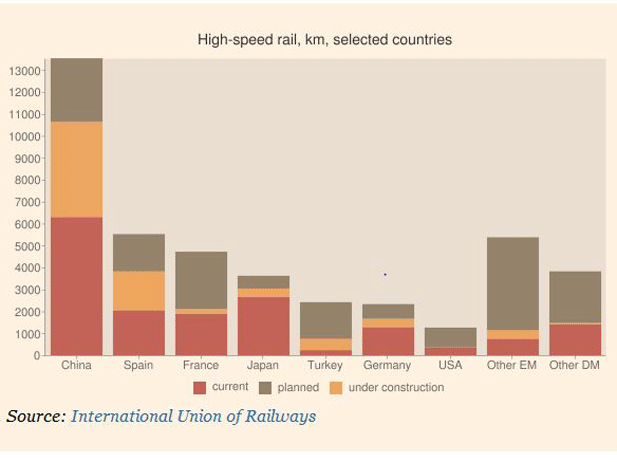Friday File: Is It Time to Intervene in Syria?

More on:
Above the Fold. Anyone who watched last night’s GOP presidential debate from Charleston, South Carolina could be forgiven for concluding that the United States has no pressing problems overseas. Not a single foreign policy question came up. That’s too bad, because I was hoping to hear how the candidates thought the United States should respond to the growing violence in Syria. My colleague Elliott Abrams has been arguing for some time now that the conflict is devolving into a civil war and that Washington’s policy should be “winning, as fast as possible.” Steven Cook, another one of my colleagues, wrote earlier this week that it’s time to think seriously about intervening in Syria. So does Steven have it right? The rising death toll—which at more than 5,000 far exceeds the carnage in Libya that triggered Operation Odyssey Dawn—certainly suggests he is. And as Robert Danin, yet another of my colleagues and someone who has met Bashar Assad twice, reminds me, publicly downplaying the possibility of U.S. or allied action on Syria serves only to reassure the regime that it will win in the end. Still, I can’t say that I find the arguments for military intervention convincing. It’s not just that the track record for U.S. military interventions is mixed at best. Or that as my colleagues—I have a lot of colleagues—Stewart Patrick and Isabella Bennett note, that the UN isn’t likely to follow the Libyan precedent and bless a military operation against Syria. Or that the American public’s appetite for another military operation in the absence of a direct threat to the United States is at a low ebb. Or that initiating military operations in a fourth Muslim country may be pushing our luck. It’s that I haven’t seen a convincing analysis of how a military intervention could be conducted at an acceptable cost and in a way that maximizes the odds that what follows Assad is better and not worse. So for now I’ll hope that stepped up diplomatic and economic pressure on Damascus can do the trick. But I remain open to being convinced otherwise.
CFR Event of the Week. Richard Holbrooke was, by any estimation, a titan of diplomacy. This week, more than a year after his death, CFR convened a meeting to discuss his legacy. The panel featured an array of Holbrooke’s friends and colleagues; Christopher Hill, Vali Nasr, Frank Wisner, and Leslie Gelb, along with Richard Haass and Kati Marton, Ambassador Holbrooke’s wife. The panel is well worth watching; it offers insights not only into Holbrooke’s life and work, but also into the diplomatic lessons he learned in places such as Vietnam, Bosnia, and Afghanistan. You can read the transcript, download the audio, or watch the video.
Read of the Week. Inauguration Day is exactly one year out. Barack Obama will be using the time between now and November 6 to make the case to his fellow Americans that he deserves a second term. If you are trying to decide where you come down on that question, or if you just want a better understanding of how he views foreign policy, check out his interview with TIME’s Fareed Zakaria. They discussed Iran, Afghanistan, China and the challenges the U.S. faces in navigating a rapidly changing world.
Blog Post of the Week. CFR’s Renewing America initiative, which was launched a year ago to examine efforts to revitalize the U.S. economy, has joined the blogosphere. Under the leadership of Edward Alden, the Renewing America blog will no doubt become the go-to place to track the growing debate about American competitiveness. Ted is already off to a strong start with pieces on "A Time for Restructuring," "Competitiveness and the State of the Union," and "Why Manufacturing Will Not Lead a Jobs Recovery."
Poll Question of the Week. The South Carolina primary is tomorrow, which means that we are officially in the thick of the presidential race. So what do Americans think of what they have seen so far. Apparently, not much. A Pew poll finds that compared to four years ago more Americans think that this campaign is “dull” (55 percent in 2012 versus 25 percent in 2008), “too negative” (50 percent v. 28 percent), and “not informative” (45 percent v. 31 percent). Perhaps the debate will get more lively, positive, and informative in the weeks to come.
Chart of the Week. I spend a lot of time on trains each week going back and forth between New York and Washington. Indeed, I spend so much time riding the WashNY (or is it the NYWash?) corridor that I can name all the stops on both the Acela and regional routes as well as how long it is supposed to take between stops. So I wasn’t surprised when I saw the chart below on how badly the United States lags behind other countries, whether developed or developing, when it comes to high-speed rail. If anything, the chart overstates how well the United States is doing. If you have ever had the pleasure of riding the Shinkansen in Japan or the TGV in France, you wonder how the Acela even qualifies as high-speed rail. And it doesn’t look as if the United States is going to close the gap anytime soon. The Obama administration’s plan to jump-start high-speed rail is going nowhere fast. Florida, Wisconsin, and Ohio have already said no to billions of federal dollars to underwrite high-speed rail, saying that it’s unlikely to pay for itself. Just this week California Governor Jerry Brown gave a full-throated endorsement to a high-speed rail system between Los Angeles and San Francisco. He faces a lot of opposition, however, so who knows if his dream will become a reality. In the meantime, if you are looking for the trendsetter in passenger train service, don’t look to the United States.
 Chart source: International Union of Railways.
Chart source: International Union of Railways.
Too Good Not to Note. Elliott Abrams highlights the growing problem of Egyptian military and police forces raiding the offices of NGOs. Isobel Coleman writes from Marrakech on the daunting challenges that North Africa faces in developing an economy that can employ its people. Paul Miller is skeptical that talking with the Taliban will work. David Rothkopf asks how you conduct a nuanced foreign policy in a 3D, big screen era. Dan Drezner wonders why Russia is more agitated than China over U.S. foreign policy. Diana Carew thinks that a competitiveness audit would be a good first step to generating new jobs cheaply and quickly. Robert Shiller asks whether austerity can promote economic growth. Scott Clement thinks that the latest Washington Post-ABC News poll reveals chinks in President Obama’s foreign policy armor. Uri Friedman writes that Mitt Romney has hit a few nerves overseas with his statements on the campaign trail.
Perils of Prediction. “Let every nation know, whether it wishes us well or ill, that we shall pay any price, bear any burden, meet any hardship, support any friend, oppose any foe, in order to assure the survival and the success of liberty.” John F. Kennedy, January 20, 1961. Kennedy’s inaugural address was undeniably inspiring. But as his successors discovered over the next decade in Vietnam, it greatly overestimated the burden the American public was willing to bear overseas in defense of someone else’s liberty.
Quote to Ponder. “We have always known that heedless self-interest was bad morals; we know now that it is bad economics.” Franklin Delano Roosevelt, January 20, 1937.
A Reason to Smile. The Year of the Dragon. Happy Chinese New Year everyone!
More on:
 Online Store
Online Store